«This is the application for membership to have the password to access the Finance Portal. So, you don't have to go there, handle everything on the computer, we'll help you. Now we are going to ask for the password to access Social Security», explained Dina Barradas, one of the technicians at the support office for the gypsy community in Vale da Arrancada, in Portimão, to one of the new residents.
A younger Gypsy woman, next to an older one, dressed from head to toe in black, held the paper with the password pointed at it. "I'm not going to miss this, rest assured," she said, in response to Dina Barradas.
The support office has three technicians – Dina Barradas, Paulo Vasco and Joana Pedro – and is installed in a prefabricated house, almost the same as those built on the land in Vale da Arrancada, between September of last year and January of this, to house the 28 gypsy families who, for three decades, they lived in the neighborhood of clandestine stalls in the heart of Portimão, next to the market and the cemetery.
The modular houses are white, but they have bars with the colors of the gypsy flag: blue like the sky, green like the earth, red like their carts. There, five other families already lived there, to which these 28 more have now joined, in a total of more than a hundred people.
Vera Frederico, 41, and her husband João Negrão, 32, are two of the new residents and wait, very upright, at the door of their new house for councilor Teresa Mendes and vice-mayor Álvaro Bila to arrive. , as well as several technicians from the municipality and the journalist from Sul Informação.
Ms. Vera doesn't mince her words and says: “I don't complain about the house, but about the street. When it rains, this is all filled with water and mud. Up here, it looks like a swimming pool. What matters is that it hasn't rained at all, otherwise I don't know what it would be like».
The councilor, who is also responsible for Social Action, says: “everything will be dealt with, it just takes some time. You have to be patient”.
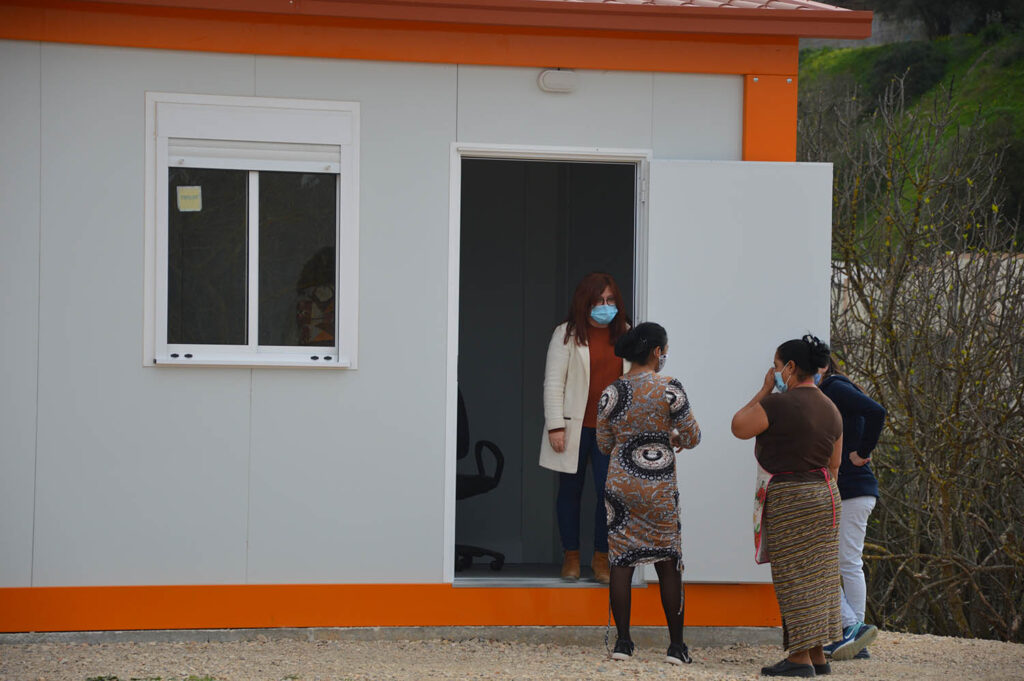
Vice-President Álvaro Bila, who knows the new residents well since, before being elected to the Chamber, was for years president of the Portimão Parish Council, guarantees that «the streets will be paved». Turning to the journalist, he says: «we are going to improve the conditions outside, even so that the new residents understand that everything has to be clean and tidy».
Ms. Vera opens the door of her house, revealing the entrance room, which is also the kitchen and the sofa where two of her children still sleep. She proudly shows off the walls of the living room, which she and her husband have lined with material to imitate shiny gray tiles. The kitchen is very tidy.
«The house has three bedrooms, but I have four children, one of whom is 23 years old. I had to buy some beds, but they also sleep in the living room».
Despite the tightness, he guarantees: «here we are much better. There we didn't have these conditions, here we have a proper kitchen. bedrooms, bathroom. It's small, but it has everything».
João Negrão, her husband, smiling but with few words, agrees: «there was a tent there, it was very different».
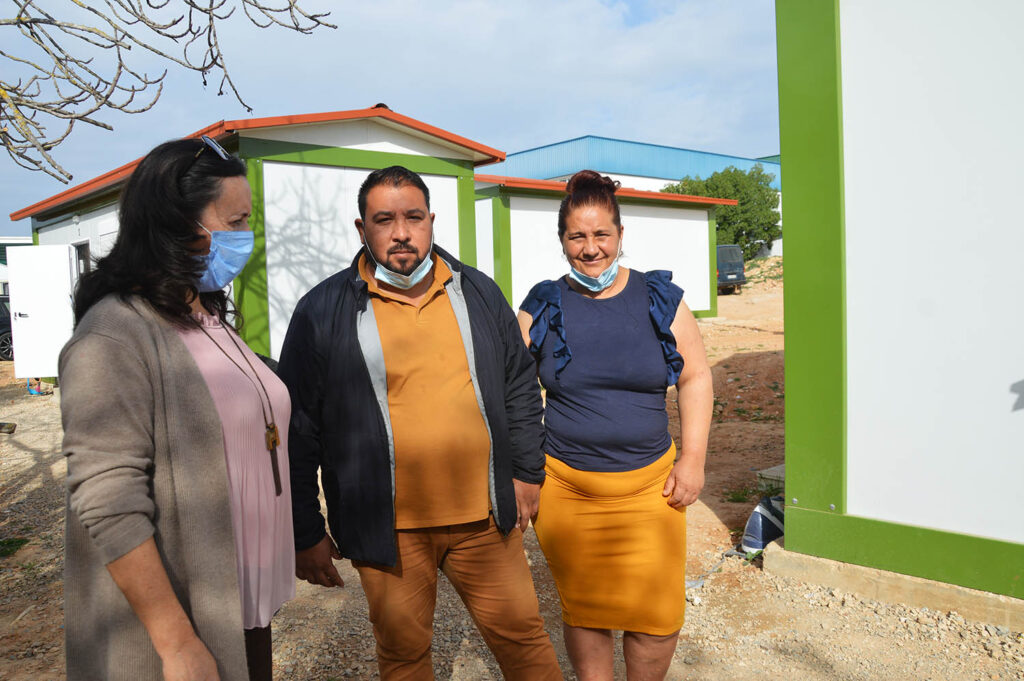
Vera's youngest children are still out of school. After being widowed, she married João, but they still have no children. «Life is difficult to have more children», she vents, looking at the boys who sleep snuggled on the sofa bed.
João adds: “there are areas where you don't see children, but in our neighborhoods there are always many. The gypsy likes children, children».
Both João and Vera (and their children) receive Income Social de Inserção (RSI), but are both enrolled in the IEFP, although they have never been called for any employment. João says that he goes on doing "odd jobs whenever something comes up". Vera took a sewing course at the IEFP and is hopeful that they will call her: «I can go to a house to do hems or arrangements, I can work in a hotel», she says. «We don't have those great abilities, it's more difficult». She doesn't even mention that it's hard for a Gypsy woman to get a job, but that's implied by the reticence in her smile.
Paula Pereira, head of the Housing, Social Development and Health Division at the Portimão Chamber, who is also accompanying the visit, explains that the gypsy community of Vale da Arrancada is busy with street vending or receives RSI. But, with the pandemic, says one of the technicians from the Support Office, “street sales stopped and they no longer had an important source of income”.
Further on, there is another neighbor, who had a baby recently, after moving to the new neighborhood of Vale da Arrancada. As soon as she sees the councilor and the vice-president approaching, she says: «this is not a house, it is a container! I had a baby, she was the first to be born here in this neighbourhood, and now I don't have a room for her, she has to stay with me».
Councilor Teresa Mendes asks: “isn't it better here? There was no running water or sewage there, but here it is».
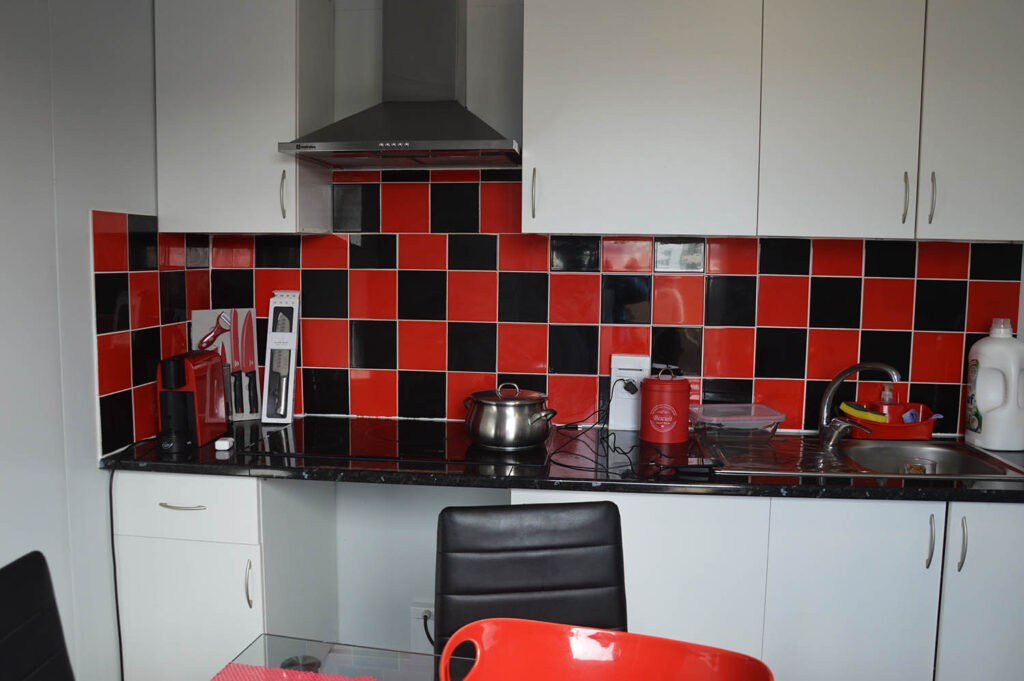
A few meters further on, two grandmothers, one of them with a baby grandson in her arms, guarantee: «I would rather be in the tent than here where I am. This is just beautiful, otherwise it's not worth anything!"
The mayor assumes that “there are things here that still need to be rectified. The streets, for example, will be improved. And they really need to be!”.
Paula Pereira adds: «after installing these families here, we were careful to go from house to house to see what the problems were. It will all be rectified.”
Joana Pedro is the manager of the social intervention project «(Re)Viver no Meu Bairro», which operates in the social neighborhood of Cruz da Midteira, in Cardosas and now also in Vale da Arrancada, that is, in all places where families of the Roma community are relocated in the city of Portimão.
Basically, Joana explains, her job is to do «mediation», establishing a much-needed «bridge between the Chamber and the Roma population».
And it is within the scope of this work, of which he speaks with enthusiasm, that he is developing a gardening studio, so that the residents of the new neighborhood can create their own gardens and flowery corners.
On the other hand, recalls Joana, «it was the children who, in another studio, created the decorations for their rooms, in the new houses».
Another of the fronts on which the social project will work is literacy, which is more geared towards adults. «Here, most people have no schooling, except for the kids who go to school or lose their RSI».
«We are going to start a literacy class for adults and we already have three people interested». One of them is Dona Ivone, an older matriarch, widowed and dressed in black. «Mrs. Ivone had already taken a literacy course a few years ago, at the IEFP, but then she didn't use the learning for anything and ended up forgetting most of it. Don't use and lose. Now she says she wants to go again and learn to read and write », explains Paula Pereira.
The process has started now, with the community moving to its new neighbourhood, but literacy classes are not expected to start for three months.
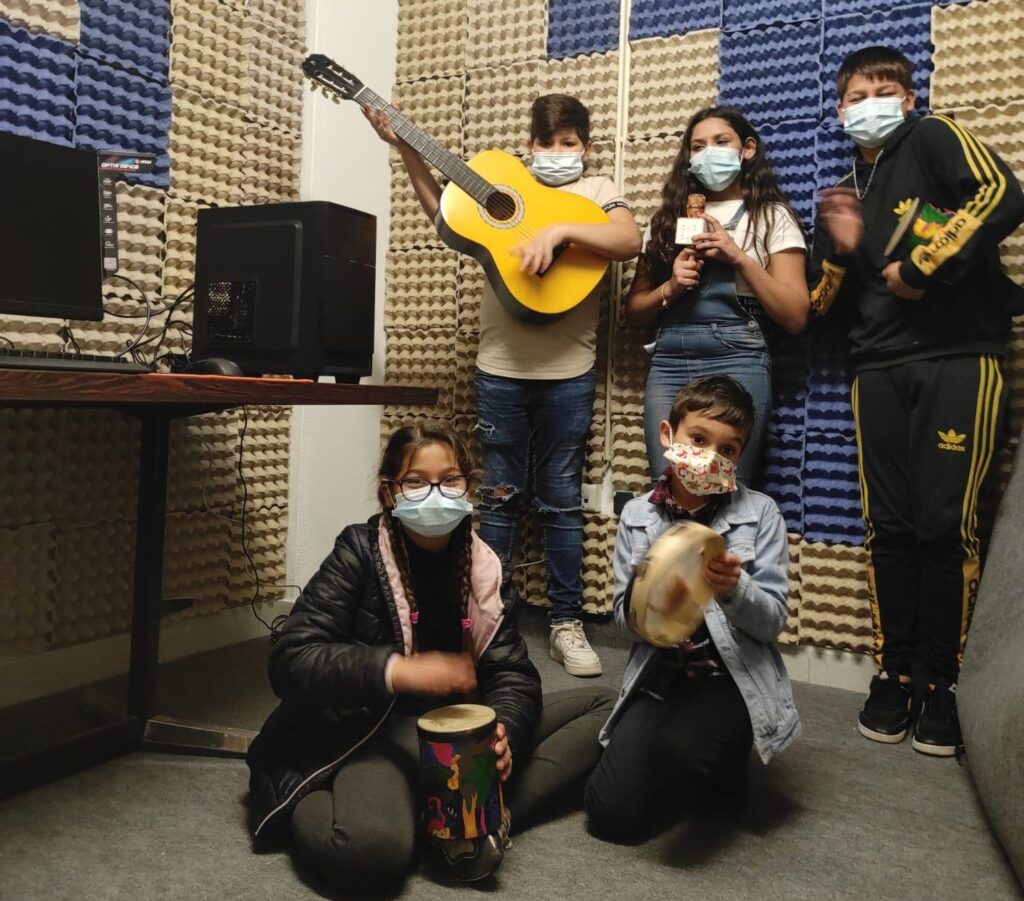
For children, there is school support on Tuesday afternoons. Wednesday, Thursday and Friday.
On Saturday mornings, there are activities for children and young people: gymnastics, plastic expression, making bracelets, origami, music. All activities that help gypsy kids to develop skills such as concentration on a task or even basic rules of conviviality. «At Cruz da Midwife, we already had these activities, which we have now also started here».
And is there progress? “Yes, there are already many differences in the behavior of the kids. They already say thank you, excuse me, be more careful with the garbage. A few days ago one of them, Igor, ate a croissant and threw the paper on the floor. But he was the one to go get it himself and he told me: if I leave this here, it will end up in the sea, won't it? These are things that we teach them here and at school».
And there are real talents there: «two children who live here in Vale da Arrancada, Junior and António, aged 10 and 12, play guitar and one of them sings very well. On Wednesdays they go to see Samuel at the “PorTiArtista” project studio that we have at Cruz da Mideira», created within the scope of the candidacy for the government program «Bairros Saudáveis».
For adults, especially women, there are training courses on seemingly trivial things, but which they have to learn to deal with, within the scope of domestic economy: “How do you clean the exhaust fan, which they didn't have in the tents? How do you work with the washing machine? How do you pay for water and electricity or get a password from the Finance or Social Security portal?”. These are, according to Paula Pereira, some of the things that need to be taught…and learned.
The head of the Social Development Division adds that “all these are very large families, which bring together several generations under one roof. We have three matriarchs here, older women, grandmothers, with whom the grandchildren stay, when they are small or when they are not at school. A grandmother who is a grandmother makes pot food for everyone, even if it is a pot of soup».
All the families that moved into the prefabricated houses in the new neighborhood of Vale da Arrancada signed a loan agreement with the Portimão City Council. But the water and electricity they consume is in the name of each family, which has to pay for them. A new obligation to which they were not used to, but which they are now learning.
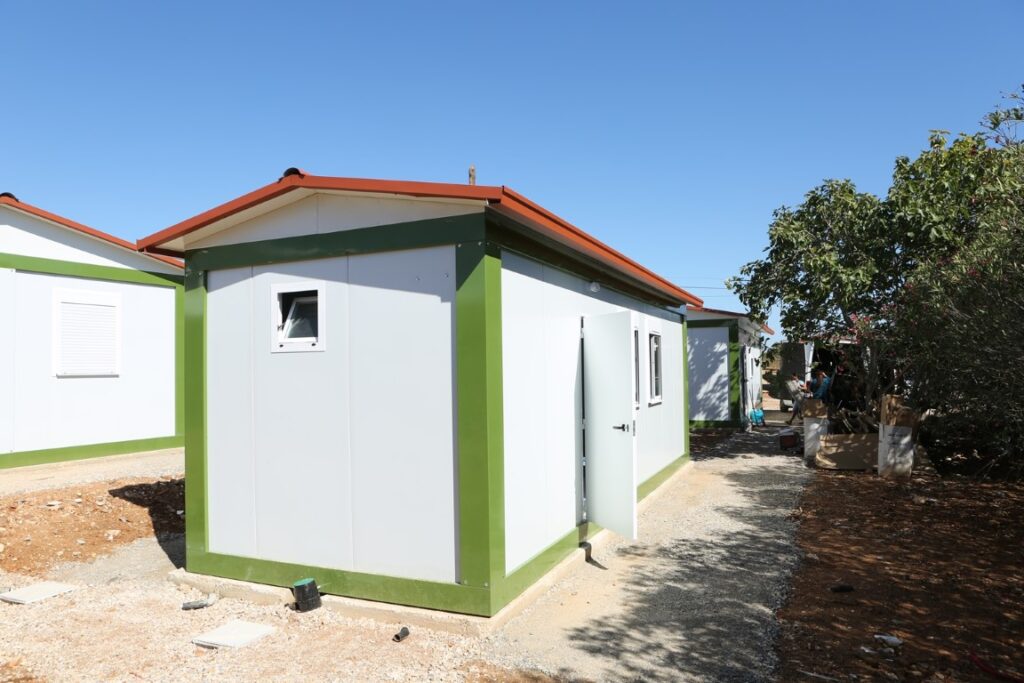
Contrary to the rumor that came to circulate on social networks when the demolition of the tents began, in September, none of the gypsy families received money – rumored to be several thousand euros… – to leave their tents and move to Vale da Arrancada.
Councilor Teresa Mendes stresses that it was just a rumor, launched at the time of the electoral campaign, to imply that the municipality favored the gypsy community to the detriment of other municipalities. “It's not true!” she assured him. In fact, during the visit to the new neighborhood, two residents of Vale da Arrancada would be asking the mayor for satisfaction in relation to the money that, supposedly, the City Council would give them. “We never received anything. How is it?”, asked the two gypsy women.
All the work that, for at least two decades, the Portimão City Council, the churches and other entities have done with the Roma community is beginning to bear good fruit. «We already have some gypsies here, linked to the church, who work in supermarkets, invest in the education of their children, who are taking technical-professional courses. One of them even volunteered to come here to do activities on Saturdays», reveals Paula Pereira.
Not everything is a bed of roses, he admits: “there are more Gypsy boys than girls in the 11th and 12th grade, but there are more and more. There is even a gypsy from Portimão who is a member of the GNR”, he adds.
«To change, generations are needed, but you are already noticing the difference», he concludes.
Joana Pedro explains that one of the things she tries to instill in Gypsy kids is pride in their ethnicity. That's why he showed them his flag, the one whose colors are on the bars of the houses, he let them hear the anthem, or he told them about the many members of the ethnic group who are public and recognized figures. “They had already heard about our Quaresma, a football player for the national team. But when they found out that Swedish player Ibrahimović is also a gypsy, the kids freaked out!”




















Comments